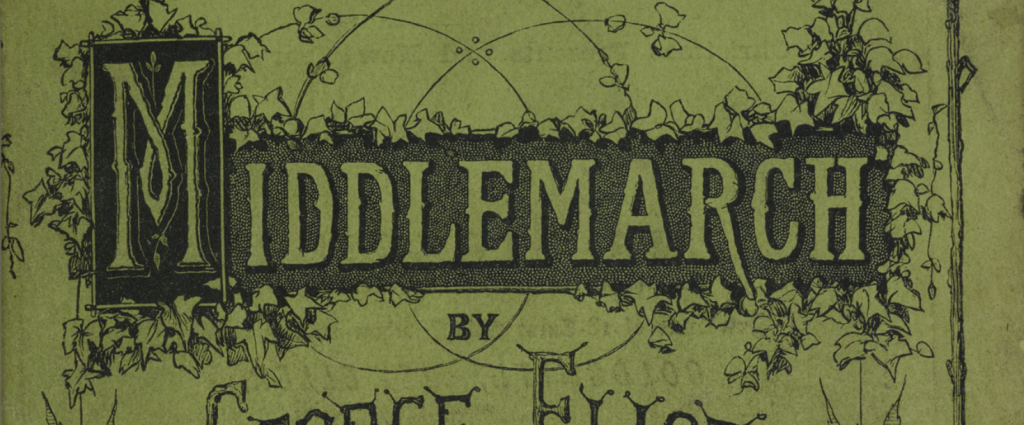‘That is a dreadful imprisonment,’ said Will, impetuously.
‘No, don’t think that,’ said Dorothea. ‘I have no longings.’
He did not speak, but she replied to some change in his expression. ‘I mean, for myself. Except that I should like not to have so much more than my share without doing anything for others. But I have a belief of my own, and it comforts me.’
‘What is that?’ said Will, rather jealous of the belief.
‘That by desiring what is perfectly good, even when we don’t quite know what it is and cannot do what we would, we are part of the divine power against evil—widening the skirts of light and making the struggle with darkness narrower.’
‘That is a beautiful mysticism—it is a—‘...
more
 The novel has been one of the most important cultural forms of the past two hundred years. Yet in contrast to poetry and drama, the distinctive formal qualities of the novel have been difficult to define. What is a novel? This course will survey the ways that theorists have sought to understand the novel’s development and its unique form. We will begin with critical accounts of the novel’s rise in the eighteenth century. Why did the novel emerge at this moment, and what is its relationship to other literary and non-literary forms, like the romance and the newspaper? We will then think about the form of the novel and how theorists offer various accounts of its formal structure and its relationship to the world it represents. We will conclude the semester by looking to postcolonial approaches to the novel. This course will focus on the British novel, and we will think about these theories in relationship to the Victorian novel, George Eliot’s Middlemarch.
The novel has been one of the most important cultural forms of the past two hundred years. Yet in contrast to poetry and drama, the distinctive formal qualities of the novel have been difficult to define. What is a novel? This course will survey the ways that theorists have sought to understand the novel’s development and its unique form. We will begin with critical accounts of the novel’s rise in the eighteenth century. Why did the novel emerge at this moment, and what is its relationship to other literary and non-literary forms, like the romance and the newspaper? We will then think about the form of the novel and how theorists offer various accounts of its formal structure and its relationship to the world it represents. We will conclude the semester by looking to postcolonial approaches to the novel. This course will focus on the British novel, and we will think about these theories in relationship to the Victorian novel, George Eliot’s Middlemarch.